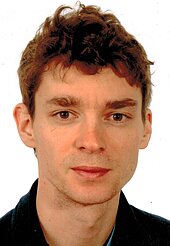Schönbeck, Sebastian
Congratulations on passing the colloquium
on 15 January 2019.
Dissertation topic:
"Poetic zoology. Animals in the poetics of the Enlightenment"
Doctoral scholarship from the Studienstiftung des deutschen Volkes (1 January 2014 - 31 December 2017)
Contact address at the University of Würzburg:
Institute of German Philology / Modern Department
Am Hubland
D-97074 Würzburg
First supervisor: Prof. Dr Roland Borgards
Second supervisors:
Prof. Dr Andrea Allerkamp (Univ. Frankfurt/Oder)
Class in the Graduate School: "Philosophy, Languages, Arts"
Doctorate in the Graduate School from WS 2013/2014.
Abstract:
The dissertation project Poetic Zoology analyses texts from the fields of poetics and natural history around the middle of the 18th century. These texts were written at a time when disciplines such as anthropology, biology and aesthetics were only gradually differentiating themselves as scientific subjects. Two points of initiation of the project can be provisionally described.
On the one hand, since Gottsched's Versuch einer kritischen Dichtkunst (1730), poetics has developed many of its central questions and principles on the basis of paradigmatic animal figures. Although this is undoubtedly also about the ennoblement of homo sapiens, the animal figures in poetics problematise his core competence: language. Last but not least, the conditions under which animals may be given a voice are intensively discussed in fable poetics (Gottsched, Bodmer, Gellert).
On the other hand, an endeavour to separate the 'literary ballast', the literary stories and myths from the individual animals can be traced in natural history (e.g. by Linné or Buffon). However, this shows that the writings of natural historians remain dependent on linguistic representations and literary techniques and forms. Buffon's notorious Discours sur le Style (1753) deals with the necessary harmonisation of textual form and life form. Moreover, it is precisely those figures from the realm of the marvellous (such as the Hydra) that keep the classifications and taxinomies unsettled and questionable.
The planned work is dedicated to the research tasks of Cultural and Literary Animal Studies (CLAS). It would like to return to their historical preconditions and develop them further by taking up the theorems that have become prominent in recent years from the catchment area of post-structuralism (Derrida, Haraway), political zoology (Vogl, von der Heiden) and theriotopias (Borgards) and attempting to sharpen them in a historically well-defined problem situation.






